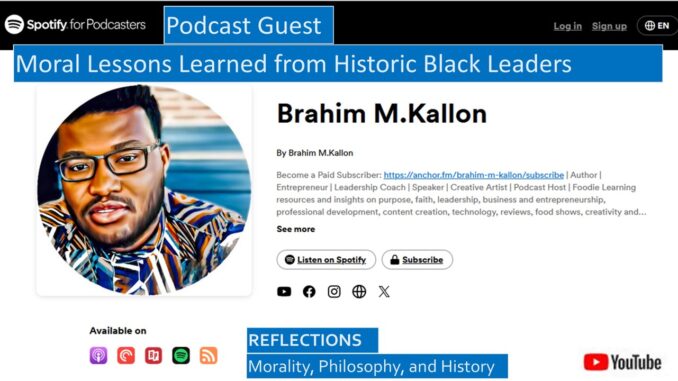
Have you ever said something and later thought to yourself, I wish I could go back in time and say that a little bit better? Well, you in YouTube land that is indeed possible.
Brahim Kallon kindly consented to have me as a guest on his podcast, but after listening to the MP4 files, I realized it was a low energy day for me, so I converted the interview MP4 files to text, edited them, added to them, checked them for good grammar, and re-recorded my answers! This was a pure podcast with no video, but now my responses have video.
YouTube video for this blog: https://youtu.be/B3EWadwRIRA
BRAHIM: Today we’re going to talk about black civil rights leaders, and I’m here with a very special guest, and I’m going to allow him to kindly introduce himself to the audience.
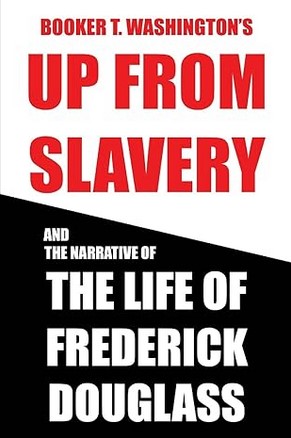
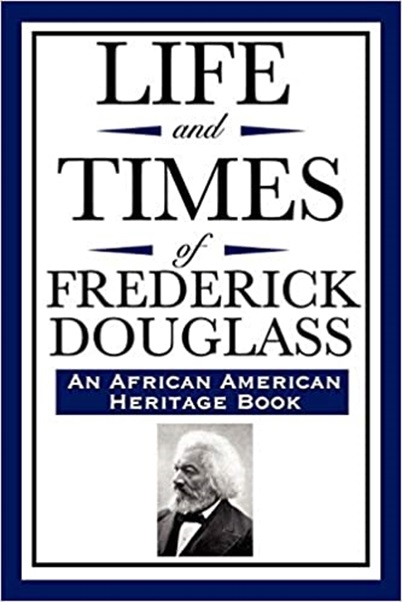
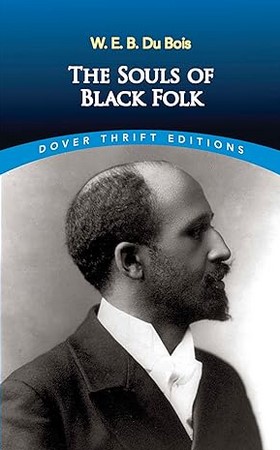
BRUCE: My name is Bruce Strom, and I’m a YouTuber. My YouTube channel is Reflections on Morality, Philosophy and History. I like to reflect on all three because you often need to know the history to truly understand the philosophy and morality. And I say morality rather than theology because today the term theology implies that my apologetics should prove why my chosen faith tradition is the superior path leading to salvation. These are not the reflections I prefer, but then I am not a big football fan either. The denominational debates remind me of the heated debates between football fans of rival teams, where your team is always the better team. I prefer reflecting on and learning from all the mainline Judeo-Christian faith traditions, and also moral philosophy.
I like to reflect on civil rights because that’s a big part of loving your neighbor. Like the country song says, you cannot love God unless you love your neighbor, and that means loving your neighbor as yourself. That is why I like to expose Christians, and in particular, my fellow white Christians, to civil rights and social justice. It’s an important part of the faith.
What is my perspective in reflecting on the speech and actions of past leading black leaders? First of all, I want to learn moral lessons from their lives. It’s not only just talking about civil rights, but it’s talking about how you should treat other people, how you should be patient with other people, how you should try to put yourself in other people’s shoes. It is about empathy. Even if you’re not a black person, if you’re a white person, you can learn how to react to people in difficult situations. And so there are many moral lessons we can learn that we can apply to living our own personal lives by studying these lives of the leading black leaders. And I prefer in all my studies to go from the beginning, beginning with what I call the first generation of black leaders.
FOUR GENERATIONS OF BLACK LEADERS
The leading black leader in the first generation is Frederick Douglass, who was a runaway slave who escaped from Maryland captivity in the 1830s. He was a leading abolitionist orator and best-selling author, writing a spellbinding narrative of his life as a slave. Douglass consulted with Lincoln during the Civil War on Black Matters, urging him to hire blacks as Union soldiers, and eventually paying them the same as white soldiers, which was controversial at the time.
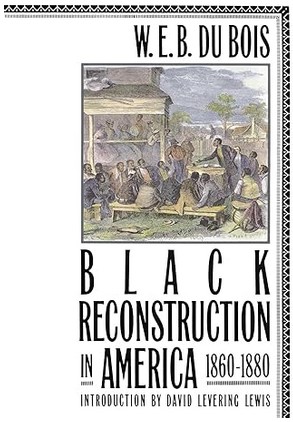
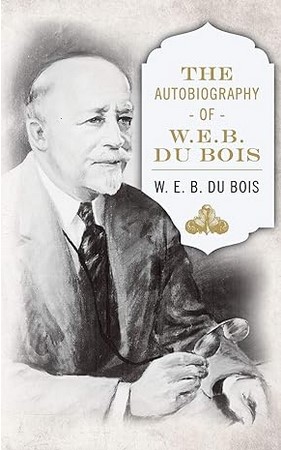
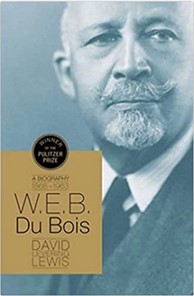
I consider Booker T Washington to be a second-generation black leader, and he and Douglass were prominent leaders in the black community. Booker was emancipated as a teenager after the Civil War ended, learning how to read and write at night school after the war, and was accepted into Hampton University, a black college. After the Alabama legislature funded the salaries for a new black college, Tuskegee Institute, their leaders asked the headmaster of Hampton, former Union General Samuel Chapman Armstrong, for a recommendation on who should lead this new institution. He convinced them to appoint his former star black student, Booker T Washington, rather than a white man, as he was ideally suited to found this new institution. Since much of the former Confederacy was hostile to blacks, Booker did not focus on civil rights and voting rights for blacks, but rather he encouraged blacks to educate themselves and learn a trade so they could earn a living, which was a daunting task for blacks after Emancipation.
I consider WEB Du Bois as the third-generation black leader, as he was born during Reconstruction after the Civil War. He was the first black scholar to earn a PhD from Harvard, specializing in sociology, studying the position his fellow blacks played in society and the economy. Although he was really the most readily recognized black leader during the day, other educated black leaders competed with Du Bois for the limelight. He was a co-founder of the NAACP, he served as the editor of their Crisis magazine, and contributed countless articles to the major magazines and newspapers of his day. He penned the ground-breaking history, Black Reconstruction, which became the dominant narrative for Reconstruction after the Sixties. He was an activist and evangelist for greater civil rights, and with the courageous Ida B Wells, protested against the many lynchings of blacks that went unpunished in America.
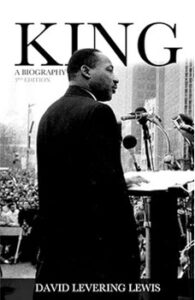
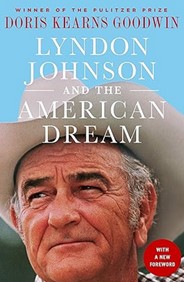
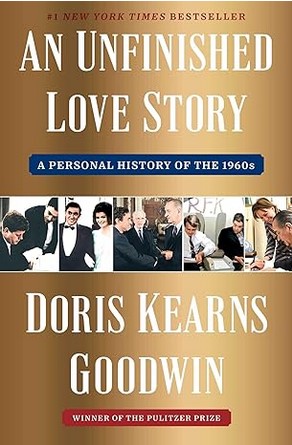
And of course, I regard Martin Luther King as the most prominent fourth-generation black leader. King was but one of many black leaders of his generation, because by the Fifties and Sixties, many blacks had become educated. Martin Luther King and President Lyndon B Johnson partnered together to coax Congress into passing the Great Society legislation that enacted much of the civil rights reforms sought during Reconstruction, plus more. Most importantly, Martin Luther King was great television, snippets of his famous speeches and writing will inspire and reverberate throughout the ages.
MORAL LESSONS WE CAN LEARN FROM MANDELA AND OTHER BLACK LEADERS
BRAHIM: What inspiration or insight or lessons can we learn from these civil right leaders, from your own perspective?
BRUCE: From my own perspective, since I admire the Stoic philosophers, my favorite black leader is Nelson Mandela of South Africa. Mandela is a very interesting black leader, because he has given us a lot of inspiration, and he has a lot of wonderful, wonderful quotes. He read Epictetus. Epictetus was an early Roman Stoic Philosopher, and he was a former slave himself. Not only was Epictetus a former slave, but his master was also a former slave which means he was a former slave of a former slave. Our reflections on Stoic philosophers are popular, and in late 2024 we will reflect on Book 4 of his Discourses on Freedom.
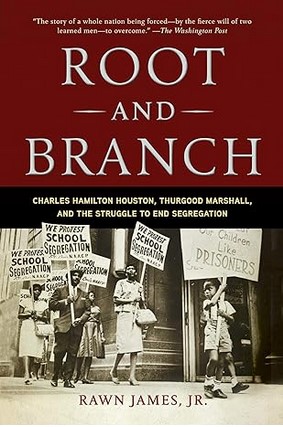

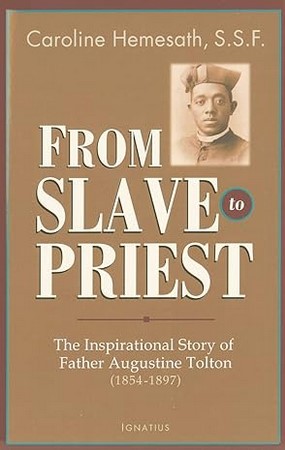
Mandela echoes Epictetus when he writes: “Prison and the authorities conspire to rob each man of his dignity. No man or institution can rob me of my dignity because I refuse to part with it for any price or pressure.”
Mandela mirrored one of the sayings of Epictetus when he said, “One day, after years of imprisonment, physical and emotional abuse, and separation from his family, Mandela said, ‘I realized that they could take everything from me except my mind and my heart. They could never take these from me. I still had control over my mind and my heart. And I decided never to give them away.’”
This sounds like Epictetus. These are just wonderful quotes. So, this is not just about civil rights, this is advice on how we should live our lives when suffering adversity. In the closing words of his autobiography, Mandela reminds us that “a man who takes away another man’s freedom is a prisoner of hatred, he is locked behind the bars of prejudice and narrow-mindedness. I am not truly free if I am taking away someone else’s freedom, just as surely as I am not free when my freedom is taken from me. The oppressed and the oppressor alike are robbed of their humanity.” This is street stoicism. If you are an evil person, you suffer as much from your evil nature as the people you abuse.
ACCOMODATIONISM VERSUS ACTIVISM
The great tension between WEB DuBois and Booker T Washington, and the tension blacks feel today, is this decision: Should you be an accommodationist, or should you be an activist?
You can’t say one is right and one is wrong. And I think it’s a practical matter. If you want to not only survive but thrive in a white culture, sometimes you have to take some abuse and just work hard both to prove yourself and to improve yourself. And if you’re black, unfortunately, in the minds of your white acquaintances, your actions are not only influencing the opinions they form about yourself, but also their opinions about your race. You may not like that reality, but that is just unavoidable.
Remember, Booker T Washington started the Tuskegee Institute in the worst years of lynching, when lynching was rampant, and he founded Tuskegee Institute in rural Alabama. What is noteworthy is that the local white community initially supported his black college, and I mean white people in rural Alabama. This means that even in the very depths of the very worst days of Reconstruction and Jim Crow, there were still good white people who were willing to help the Negro. And not only did they exist, but the Negro could have never gotten ahead unless some white people in the beginning had helped them, because they were starting out from nothing, because the freed slaves were dirt poor, and most of them couldn’t even read. Many ex-plantation slaves, including Booker T Washington, had never slept in a bed, nor had they ever eaten at a table with a knife and fork, until after they were emancipated by Abraham Lincoln.
So, Booker T Washington’s focus was on educating blacks so they could learn a trade and earn a living. His focus was not on civil rights, on preserving the right of blacks to vote, because these were just not battles that he could fight and win at that time, that was a task for the next generations of black leaders. After a few years, he discovered that the local resources were just insufficient to cover the costs of running Tuskegee. General Armstrong, Headmaster of Hampton University, again stepped forward, recommending him to contacts he had with Northern financiers.
Booker believed in delegating responsibility and developed the skills of his subordinates so they could run Tuskegee while he was on the road raising funds for the institution. Booker T Washington would often be on the road for six months out of the year, meeting with potential and past donors, attending conferences, meeting and hobnobbing with white business and political leaders. Fundraising on this scale has a really long sales cycle. When he first met with a white businessman, he might get fifty or sixty dollars, which was a significant amount of money in the 1890s. But, after about five years, this same donor might donate five or ten thousand dollars, and in his will he might bequeath fifty or a hundred thousand dollars to Tuskegee Institute.
The sales cycle was often decades-long when raising these large sums of money. Of course, he was compelled to color his speech because of these donors. If he gained a reputation as a radical activist, pushing too ardently for civil rights and black suffrage, he would risk losing major donations. So, he was trapped, and he knew it. There was a great deal of tension between him and civil rights crusaders like Ida B Wells, known for her opposition to lynching, and a young WEB DuBois, because they thought he was too much of an accommodationist.
Booker was likely sympathetic to the objections of his critics. Thomas Sowell claims that Booker himself contributed to the nascent NAACP, and secretly funded the efforts of various activists, sometimes funding court challenges to the unjust Jim Crow laws of the South. After he passed away, his successors at Tuskegee were more low-key, and black leadership passed to the more activist leaders of the NAACP.
Accommodation is not enough; activism is and will always be necessary when accommodation fails. For example, during World War II when the factories started gearing up for war production, there were instances documented where a highly educated black man, even with a PhD, could not find a job suitable for his education, and was compelled to work as a janitor. Activism is sometimes necessary because there are some white employers who will never give Black people a chance unless they’re compelled to. You can criticize tokenism if you wish, but what is true is that token employees are then often provided a chance to prove their worth.
Are EEO, or Equal Employment Opportunity laws, counterproductive? Do they discriminate against white people? When should these laws be repealed? Perhaps the best answer is that time will come when their repeal will not be controversial. In my opinion, this time won’t come until another generation or two has passed, and there has been sufficient intermarriage that a great percentage of our citizenry has black blood flowing in their veins. Perhaps we should decrease the racial percentages enough to ensure that the doors stay open for minorities.
If you are black, should you be an accommodationist or an activist? Many blacks may need to have a combination of those two types of approaches. Initially, most blacks are accommodationists out of necessity if they are in the minority. But you can take only so much abuse at work. At some point, you may want to hire an attorney to write a threatening letter and threaten to complain to the EEOC. Based on my personal experience, this does scare the human resource department of the larger corporations and could earn you a bit of consideration.
I think that whether an aggrieved black person should be an accommodationist or an activist in a particular situation can be a tough call. And I think that to a certain extent, whether or not a black person is an accommodationist or an activist, depends on their personality. Some people are naturally more conciliatory, some are more assertive. The accommodationist turns the other cheek, while the activist demands his civil rights and mans the picket lines.
Of course, white employers prefer the black accommodationist over the black activist. The smaller the business, the more they concentrate only on the bottom line, calculating how each individual employee will contribute to their profits, and activism can distract from the bottom line, and they are right. And Republicans are more likely to prefer accommodationists, while blacks are more likely to be activists than whites.
At this point, some activist blacks will ask: How can I, as a white man, even pretend he can imagine what it would be like to be a black person, and suggest what they should do? Although I do not like much of the talk about how bad it is to be woke, sometimes these discussions are debates over whether activism can sometimes be counter-productive, and that some blacks may respond to the challenges of ill-treatment in ways that are not helpful. So, my simple answer to this question is I do not need their permission to be compassionate, and that, of course, my opinion can only be that of an older compassionate white man.
What lessons can whites glean from this question? Simply put, that at work, and in life, you should always ponder whether a disagreement is a major disagreement that you should fight for, or whether it is a minor disagreement that you should just let slide. Save your ammunition for battles that truly matter.
PARTNERSHIP BETWEEN LBJ AND MARTIN LUTHER KING
While WEB DuBois was always an activist, Martin Luther King was primarily an activist, although sometimes he was a tactical accommodationist when he partnered with President Lyndon Johnson to coax Congress into passing landmark Civil Rights legislation that enacted the civil rights reforms sought during Reconstruction plus more. They both agreed that strengthening voting rights for blacks, though essential, would have to wait. First, civil rights bills were passed guaranteeing due process for blacks, equal education for blacks, and other civil rights, as well as equal access to public accommodations, including restaurants, trains, and buses. The last civil rights bills passed guaranteed the right of blacks to vote, and guaranteed fair housing for blacks. Public support for voting rights legislation was guaranteed because of the violence at Selma Americans witnessed on television.
Why has support for civil rights been fading among whites over the last decade? Simple, the civil rights events are slipping back into the history books, subject to interference by state boards of education, who don’t want our children to learn these lessons. The civil rights protests are slipping from living memory. I am in my late sixties, and the only thing I remember about Kennedy being shot is that his funeral caused the networks to cancel my Saturday morning cartoons. I don’t remember seeing anything about the civil rights struggles in Selma or anywhere else on television, I was just too young. But if you’re in your seventies and you’re white, you are more likely to be liberal, because you remember watching the protesters being beaten and dying on the television set in your living room.
There were martyrs in Selma. One white minister who marched in the protests was beaten to death by a white supremacist. Another minister was shot in the gut by a policeman, and later died, and this policeman was never punished. And so, you know, he was a martyr. There were numerous martyrs in the protest marches marching across Selma Bridge. Americans watched on their television sets in their living rooms scenes where policemen on horseback and batons were beating up protesters on Selma Bridge. Millions witnessed the carnage. So, yeah, that’s what helped pass the Voting Rights Act.
What I find interesting was that JFK and LBJ had totally different approaches to civil rights. Although John F Kennedy had lip support for civil rights legislation, he was not energetically pushing it. But anytime he received a phone call from Mrs King saying: Oh no, Martin Luther King’s in jail, he panicked. The President would call the police chief to make sure you don’t harm our precious Martin Luther King, who is sitting in your jail.
On the other hand, LBJ was personally committed to doing whatever it took to pass civil rights legislation, even if it meant strengthening the Republican Party in the long run, which it did. Whenever Martin Luther King got thrown in jail under his watch, he just let him sit in jail, twisting in the wind. King was fine with this approach, because they both knew that if something bad happened to King, it would just make it that much easier to pass the civil rights legislation they were both fighting for. So, JFK and LBJ each had differing approaches.
We must not forget the patient, decades long efforts of the NAACP counsels Thurgood Marshall and Charles Hamilton Houston, whose efforts patiently challenging the Jim Crow legal system led to the Supreme Court Brown decision that mandated school desegregation. Without their patient incremental battles, the Supreme Court may have not paved the way, ensuring the success of Martin Luther King and Lyndon Johnson in passing the Great Society civil rights legislation. Furthermore, the efforts of Marshall and Houston helped white leaders to recognize the moral necessity of overturning the cruel Jim Crow legal system. They served many years free of charge, and in the final years of the crusade were paid far, far less than they would have earned in private practice. Later, LBJ appointed Thurgood Marshall as a Supreme Court justice.
WILL THE PROMISE OF EQUALITY EVER BE FULFILLED?
BRAHIM: My question to you is, do you think that the promise of equality has been fulfilled? Did the Civil Right Movement influence the entire US population, not just the black Americans?
BRUCE: Will the Civil Rights movement ever be fulfilled? It has not yet been fulfilled. But I can tell you when it’ll be fulfilled. It will be fulfilled when you make that last trip across the river, and you go to that place where everybody’s kind to you, and everybody’s nice to you, and where there is no discrimination. But once you go to that place, you’re not coming back. It’s a one-way trip, because when you are singing with Elvis, you know, you can’t come back.
Civil Rights is just an eternal struggle, the struggle for encouraging everyone to love their neighbor, and to be kind to their neighbor, which is really what the Civil Rights movement is all about. From the minute that President Nixon got elected, the Republicans have been trying to rollback civil rights, and the Republican Supreme Court justices have been pushing back against civil rights ever since. So, it is a never-ending, eternal struggle. It just never ends.
It is a struggle, and it is tough because life is just tough, period. The trap that many blacks fall into is they figure if they are not getting ahead, it’s because they are being discriminated against. Well, that may be so, but you can’t really assume that it is so, or you will never get ahead. You know that God gave you the color of your skin, and you are not going to change it. So, you just need to do the best you can. And some of us are successful, and some of us aren’t, sometimes this is due to chance, and sometimes life is just not fair. Like Homer tells us in the Iliad, Zeus gives some people a full basket, and he gives some people an empty basket. And that is just the way life is, life can be tough and cruel. You just have to do your best.
But we must admit, the world today is a far better world for blacks than it was fifty and a hundred years ago. Does structural racism exist? Of course, there is structural racism, it is impossible to completely eradicate it. But structural racism is just a subset of a much larger problem, and that is that beautiful people have a greater advantage in life. We know this because businesses always prefer to hire attractive young women fresh out of college as salespersons. Businessmen will always listen more attentively to saleswomen who are eye candy, and eye candy young women are also much more likely to become movie stars.
But there is one profession where beautiful people do not have the edge. When you apply to be a musician for a symphony orchestra, those who decide whether you will be hired as a member of the symphony orchestra will not see you, they will not know whether you are white or black, man or woman. They will not even be told your name. You will audition from behind a curtain, and the only criteria for whether or not you are hired is how well you play your instrument. This is the only way to hire without prejudice.
Another area where blacks can expect fair treatment is when they apply for a mortgage loan. When the federal government compelled the mortgage industry to be color-blind in granting mortgages, bankers discovered that the only way to eliminate discrimination was to eliminate judgments of personal character. The only way bankers can lend without discrimination is to approve loans based solely on the applicant’s credit score.
SHOULD BLACKS BE PAID REPARATIONS?
Personally, on the subject of reparations, I agree with Obama. I am not a big fan of paying reparations to every black person. The first priority should be paying a decent minimum wage. I believe in FDR’s New Deal philosophy, if you work a forty-hour week, you should be entitled to receive a minimum salary sufficient to feed, clothe, and house your family with dignity. We should also subsidize public college education so that it is as inexpensive for this generation to be educated as it was for my generation. Reparations is a political impossibility that would only distract from passing other necessary reforms to assist the poor.
Perhaps local initiatives to pay specific reparations for specific injustices suffered in the past century should be encouraged. For instance, perhaps the citizens of Oklahoma should agree to pay reparations to those black families financially harmed by the Tulsa Race Riot, where thousands of blacks had their houses and businesses burned and looted, and many were killed or wounded. There were also race riots where blacks similarly suffered in the early twentieth century in the interwar years in many other cities.
APPEARANCES AND RACISM IN THE RECENT PRESIDENTIAL DEBATES
Appearances also matter in politics, and in particular, televised Presidential debates. In the first television debates between JFK and Nixon in 1960, John F Kennedy was declared the winner because he was better television. But many of those who listened to the debates on radio thought that Nixon was the superior debater.
We all know how badly Biden fared in his debate against Trump. Biden just did not raise the debate points he should have raised on multiple issues where Trump was disastrously weak. But if you only read the transcripts, you would conclude that Biden didn’t do that bad a job, and if someone else had delivered his points, they would have done much better.
Biden was older, Biden was slower, Biden was not sharp. Although he is an excellent President, his debate performance was subpar. But then, Biden was born a stutterer. He was never an outstanding public speaker. This is beyond him, although when he was younger, Biden overcame his limitations as much as he could.
Trump, although he rambles, and his rambles are far more incoherent than before, he was the better debater that night. But then Trump has been practicing his lines since 2014, that is all he does, he goes to rallies all the time, practicing his lines constantly, like a comedian, searching for the lines his crowds love. His best lines do not need to be true, they only need to draw cheers and applause.
Kamala, in her debate with Trump, was much better television. She trounced Trump, most people say she beat Trump resoundingly. The look on her face was priceless television when Trump announced that the Haitians in Springfield were eating all the DAWGS and the cats and the geese and all the other pets.
But liberals overlook the fact that Trump also won the debate. Trump said exactly what he wanted to say about Haitians, he said exactly what won him the election in 2016, and he said exactly what he needed to say to win the election in 2024. The real question is: Will the American people be nobler in 2024 than they were in 2016?
When Trump told the black journalist convention that Kamala had only recently turned black, he knew exactly what he was saying. He said it in a forum he knew would generate maximum publicity. To be truthful, though Kamala Harris has a black name, and even though she graduated from the black Howard University, she could pass for white. Trump knows that many old white men would never vote for a black woman no matter what, and he wanted to paint Kamala black as a burnt black kettle.
CONCLUSION: Life is not always fair, and some people are better at appearances, they just present themselves better. It was not so many years ago that blacks appeared on television and in the movies as servants, such as the characters of Mammy and Prissy in “Gone With the Wind,” and as Morgan Freeman playing the driver in Driving Miss Daisy. But in recent decades we have had black stars who are popular with both blacks and whites, one prominent example is Oprah Winfrey. And let us not forget James Earl Jones, who was famously the voice of Darth Vader, and he has also played many iconic roles. Recently, we have witnessed the beneficial trope of the old wise black, old black man, often starring Morgan Freeman, whom we always remember as the participating narrator of Shawshank Redemption. And the percentage of interracial marriages has increased greatly, let us not forget that it was not until 1967 that the Supreme Court found that state bans on interracial marriages were unconstitutional.
Regarding blacks and civil rights issues, whites should err on the side of compassion. That was the philosophy of the founder of Promise Keepers, Coach McCartney. When he was a football coach recruiting star black high school athletes, he witnessed the challenges that black families often faced and the discrimination they faced every day. His message to his fellow whites, and a key Promise Keeper promise, was to always: Err on the side of compassion.



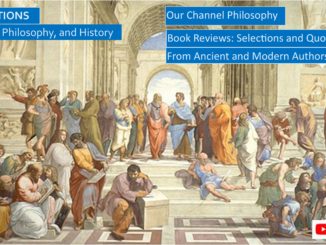
Be the first to comment